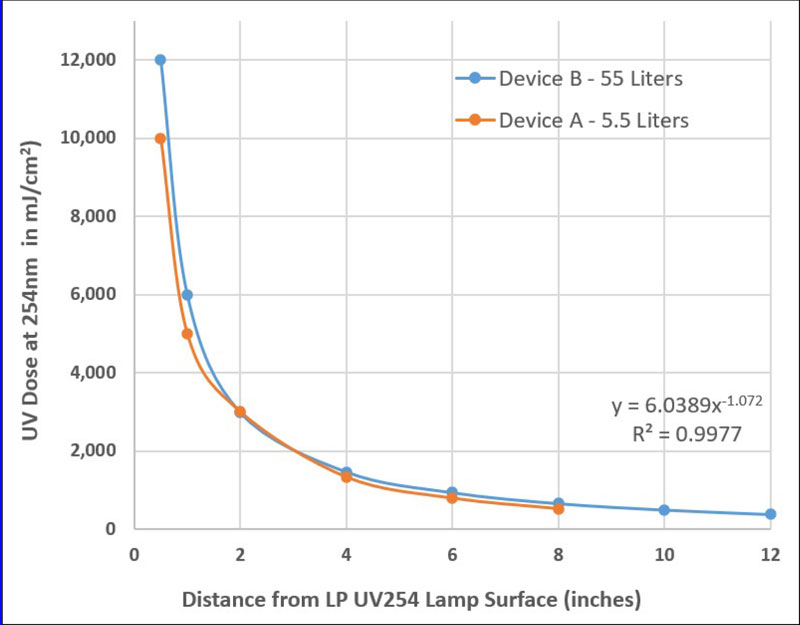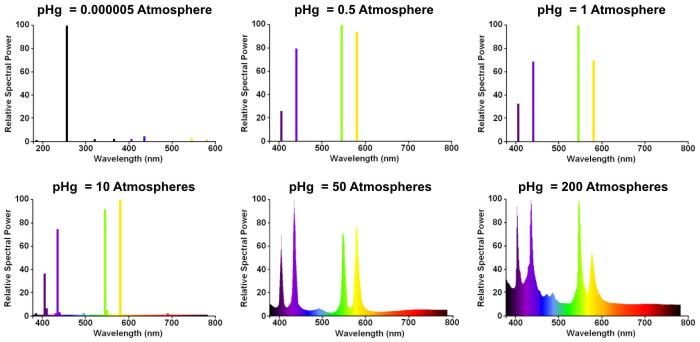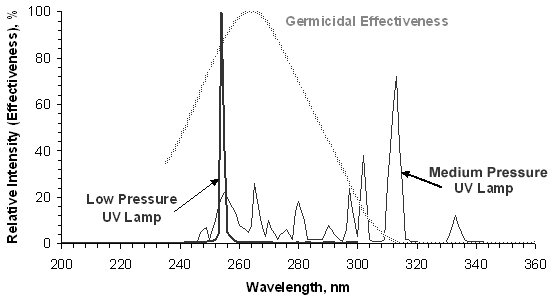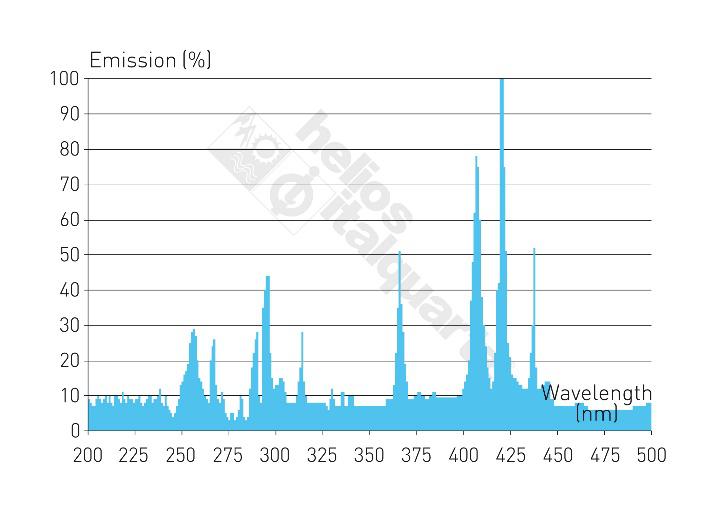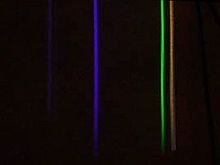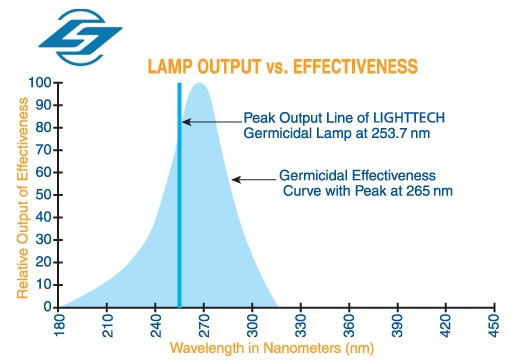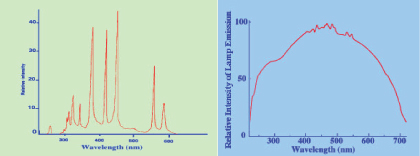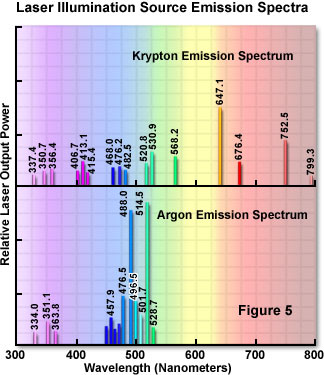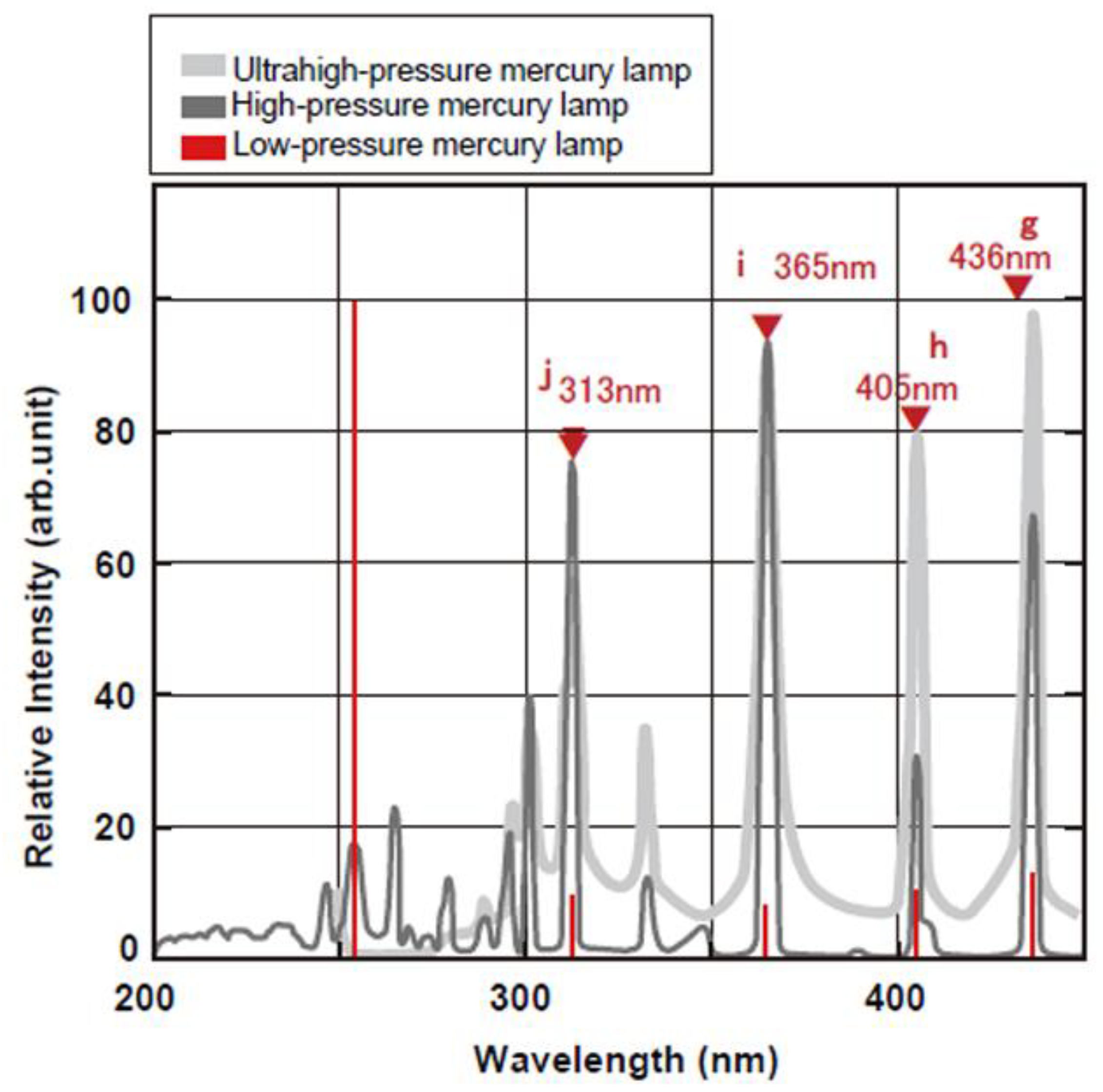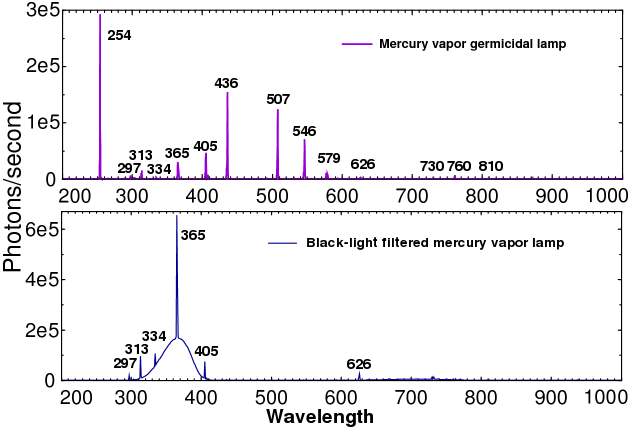The strongest peaks of the emission line spectrum are in low pressure mercury vapor lamps only the lines at 184 nm and 253 nm are present.
Low pressure mercury lamp emission spectrum.
Rather than a cold spot the lamp s amalgam spot on pellet regulates mercury vapor pressure during operation and yields up to three times the uvc output of a standard low pressure mercury lamp of the same length.
Amalgam lamps use a mercury amalgam mix to control mercury vapor pressure.
In medium pressure mercury vapor lamps the lines from 200 600 nm are present.
The emission of low pressure mercury lamps exhibits a characteristic optical spectrum with pronounced spectral lines mostly in the visible and the ultraviolet spectral region but partly also in the infrared.
These types of lamps are available in ozone producing and ozone free quartz with a variety of phosphors.
Widely used in mercury vapor lamps.
Lp lamps operate at about 40 c and have one useful disinfection output peak at 254nm.
Aquafine lp lamps are considered to be monochromatic or single peak output lamps.
There is not emission in the ranges uv b and uv c and also in the visible spectrum the emission is minimum.
Often called germicidal or ozone absorption lamps they are very stable light sources.
The five well known emission lines of mercury hg at 405 436 546 577 and 579 nm are clearly visible.
Fused silica is used in the manufacturing to keep the 184 nm light from being absorbed.
Only the light at 253 nm is usable unless synthetic quartz is used to manufacture the tube as the line is otherwise absorbed.
Aquafine standard low pressure lp and amalgam low pressure lp lamp spectrum.
Facts about aquafine standard low pressure lp lamps.
Line spectrum of mercury vapor.
Sodium vapor low pressure bright orange yellow.
Low pressure mercury vapor lamps are a highly efficient source of uv light particularly short wavelength uv light 254nm and 185nm.
Low pressure mercury lamps emit sharp bands primarily at 185 and 254 nm.
The power density and the radiance of the emitted light are relatively low.
The latter two yellow lines not resolved by.
Widely used in sodium vapor lamps.
Due to this characteristic emission spectrum these lamps are not suitable for laboratory photo oxidation studies klan and wirz 2009.
The visible spectrum is not very spectacular.
Strong emissions occur in the 350 380 nm region at which typical uv photoinitiators absorb.
